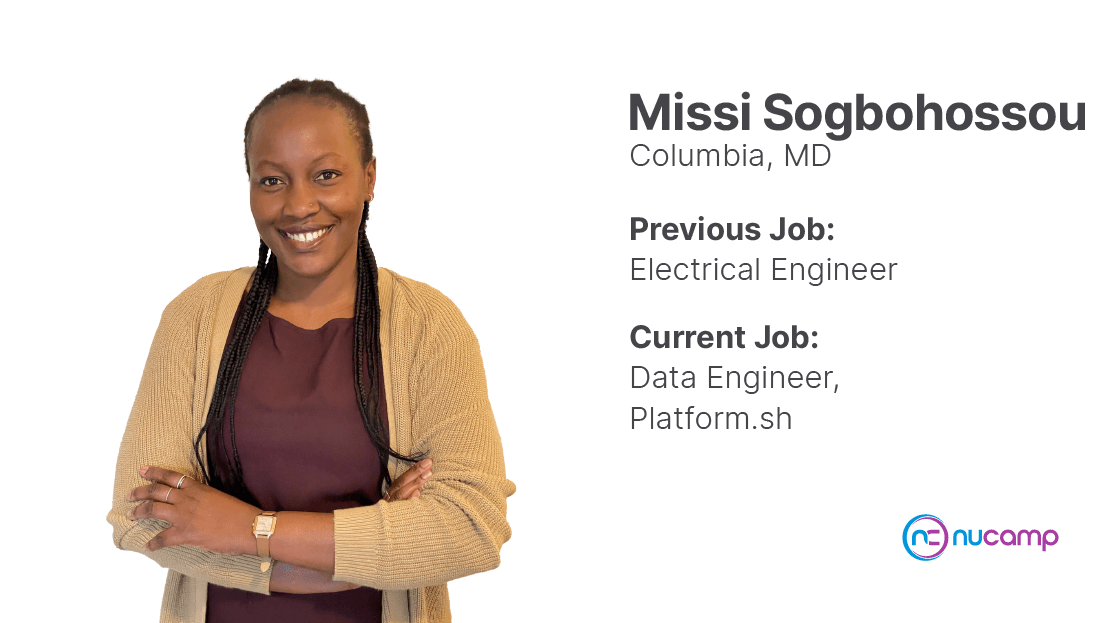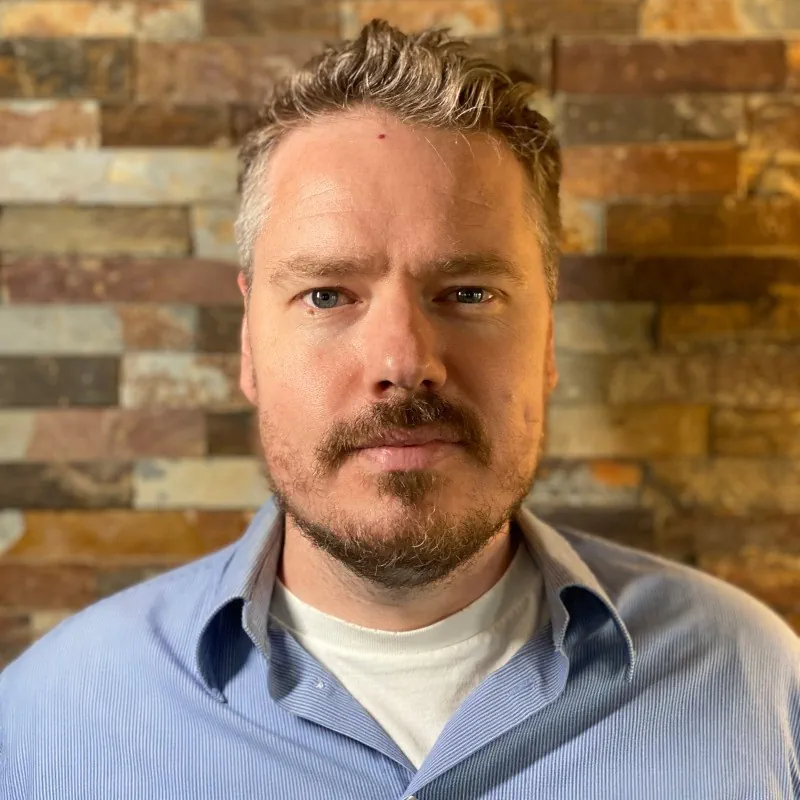The path to breaking into tech doesn’t need to be taken alone
Last Updated: May 9th 2024

From Electrical Engineer to Data Engineer, Platform.sh
"Frankly, Nucamp gave me all the tools I needed to be successful. I was browsing jobs and seeing what employers were asking for, and what Nucamp was teaching were all the tools that were in demand."
This is Missi Sogbohossou, a Nucamp Back End Bootcamp graduate and now a Data Engineer at Platform.sh.
Missi first crossed paths with coding at a young age and always knew she wanted to become a software developer.
She first learned Pascal and, eventually while completing her degree, she spent a semester learning C; she absolutely loved it!
But, at that stage in her journey, it made more sense for Missi to study Electrical Engineering with the hopes of transitioning to Software Development in the future—a common path for Electrical Engineers.
It paid off and she was quickly able to land her first job as an Electrical Engineer, but always still aiming to end up in software.
Missi became highly skilled in the industry and ended up spending many years as a successful Electrical Engineer—much longer than she originally anticipated.
Eventually, she started to notice that the industry was slow to change, slow to innovate, and resistant to creative solutions, all of which prompted her to start thinking about software again.
Not wanting to go back to school for another degree, she diligently researched coding bootcamps nearly every day for about a year until she found the program within her budget and with the right tech stack.
Nucamp’s coding bootcamps packed both the right curriculum and price Missi was looking for.
Her employer would be able to cover the cost and the Back End bootcamp taught the skills employers were asking for.
Missi’s time at Nucamp was an intense and also positive experience.
She is now in a data engineer role working with a data analytics team designing data pipelines using Python and Gitlab in her day-to-day.
“Nucamp was awesome! I learned a lot in a short time period, including how dedicated I am to achieving my goals. I knew I was going to be a software developer, no matter what.”
Describe your job search process.
Missi started her job search near the end of her bootcamp, using LinkedIn, Dice, Indeed, and Glassdoor to apply for close to 300 jobs.
It was stressful not hearing back from employers and so she reached out to her network asking for job and internship opportunities.
She also strategized and used different approaches for her applications, including launching a Github account and setting up a call with her instructor.
After Missi met with her instructor she was motivated and pushed to apply more strategically to positions and heard back for almost each one she applied to after.
Missi gained an internship through her instructor during her application process and 4 months into her job search process she was offered her current full-time job.
Tell me about a moment of doubt or difficulty and how did you overcome it?
At the beginning, Missi wasn’t confident she was going to learn the things she needed to break into development, but she made sure to ask lots of questions and stick with it.
Eventually, Missi asked her Python professor about what he did in his day job and discovered many of the things she was learning in the coding bootcamp, he was using at his job.
This gave her the confidence to actually quit the job she no longer loved and go all-in on learning.
What advice do you have for people who are thinking about attending a bootcamp, but haven't yet registered?
“First, figure out what you are interested in doing. If you know you want to do back end, figure out what languages you need to know to become a back end engineer. Then start studying so you have an idea of what you will be doing in your future goal. I wish I had done more Python before I started the bootcamp. Start coding and see if you are interested. I met a lot of people who got into the field because they thought it would be flexible and they could make a lot of money, but it turned out they didn’t actually like coding.”
What advice do you have for people who have already started the bootcamp and they are just about to finish Bootstrap?
“I don’t think anyone is an expert the first time they do something. You have to be willing to be bad at first, but it has to be worth it for them. They need to like it. I went through the bootcamp twice (re-watched videos) and when I did it the second time, I always learned something new. I used to be scared of starting over or deleting things, but I learned that’s part of being a software engineer. It gives you an opportunity to figure out how to make it work. It’s impossible to get that knowledge in just 4 months if you’re not putting in the extra work and time in."
Chevas Balloun
Director of Marketing & Brand
Chevas has spent over 15 years inventing brands, designing interfaces, and driving engagement for companies like Microsoft. He is a practiced writer, a productivity app inventor, board game designer, and has a builder-mentality drives entrepreneurship.


